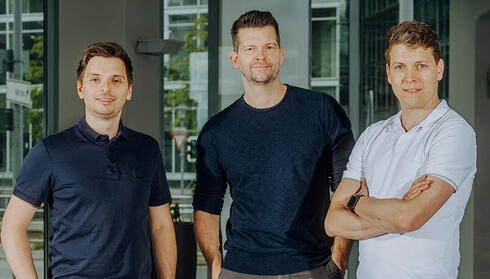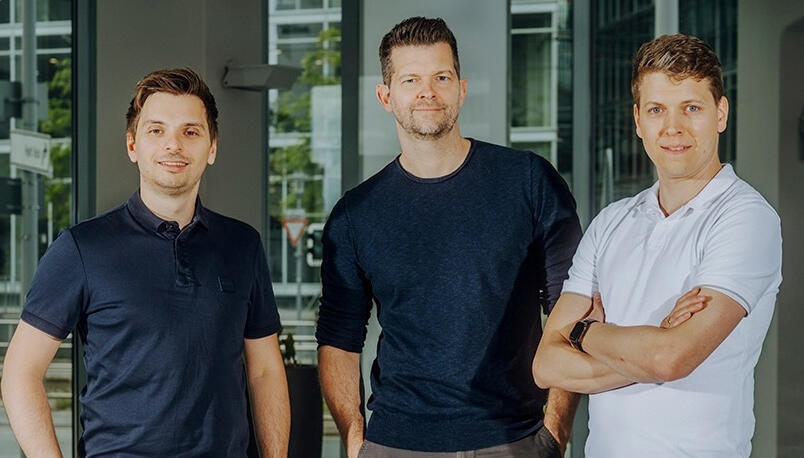
Nice goes all-in on AI with $955M Cognigy acquisition
CEO Scott Russell’s boldest move yet aims to reposition the 40-year-old tech firm in a rapidly shifting market dominated by generative AI.
Investors were anticipating a major AI move from Nice, and CEO Scott Russell delivered just six months after taking office. The company announced on Monday that it will acquire German startup Cognigy for $955 million in a cash-and-stock transaction, making it the largest acquisition in Nice’s history.
In Europe, the deal is being heralded as the continent’s biggest AI exit to date, fueling hopes that Nice’s bold move will catalyze more activity in the region. In the customer relationship management (CRM) sector, analysts expect the deal to trigger a wave of similar acquisitions by Nice's global competitors.
Founded in 2016 in Düsseldorf, Cognigy has raised about $170 million, including from Insight Partners, a U.S. fund active in Israel, and employs 300 people. Despite being nearly a decade old, Cognigy’s annual revenue stands at just $85 million, though it projects 80% growth this year. The company’s flagship product is an AI-based platform for managing customer service centers, designed to maximize automated responses while minimizing the need for human representatives. It currently serves around 1,000 customers, most of them in Europe, including major brands such as Mercedes-Benz, Lufthansa, Adidas, and Bosch.
Nice, which holds $1.1 billion in net cash, will finance the acquisition from internal resources while continuing its $500 million share repurchase program. Post-acquisition, expected to close in Q4 2025, the company will be left with $400 million in liquidity, a figure deemed manageable given its positive annual cash flow of over $1 billion.
Russell’s challenge now is to convince investors and customers that this is the strategic leap Nice needs to stay competitive in an AI-first future. Founded nearly 40 years ago, Nice is one of Israel’s most established tech companies. Its shares rose 5% in New York on Monday and 3% in Tel Aviv, bringing its market value close to $11 billion.
On one hand, the stock uptick signals investor confidence in the strategic direction. But some remain skeptical about whether Cognigy, specifically, was the right target. The company had no competing offers, and its sub-$100 million revenue figure raises eyebrows. Critics wonder if Nice overlooked better-positioned American startups. Russell himself acknowledged that his familiarity with Cognigy stems from his long tenure at SAP, the German software giant.
Still, Nice has a precedent for surprising skeptics. Its previous billion-dollar acquisition, of inContact, was seen as obscure at the time but proved to be a masterstroke, launching the company into cloud-based CRM just as the market was shifting. Russell is betting that Cognigy will serve as the same kind of inflection point, this time for AI.
Nice is currently among the world’s most formidable CRM vendors. At the height of the pandemic, it briefly became Israel’s most valuable company. This year, it’s expected to approach $3 billion in revenue. But since generative AI’s breakout in late 2022, its core market has been under pressure. AI agents have grown increasingly sophisticated, posing a threat to Nice’s traditionally labor-intensive and costly systems.
Big Tech is circling the same market. Microsoft, Amazon, and Google are rolling out tools that promise similar results with simpler, cheaper AI-based platforms. Microsoft even launched a dedicated product targeting Nice’s territory a year ago. Against this backdrop, Nice’s growth has slowed. Its 2025 forecast predicts only 7% growth, the first time in years that the company is entering single-digit territory.
Cognigy is intended to change that trajectory. Its platform enables AI-first customer service, where the bulk of user interactions are handled by bots, with only the most complex escalated to humans. Today, Nice reports that 73% of its customers use some form of bot automation, but only 14% of issues are fully resolved without human assistance. In large organizations, just 5% of interactions are handled end-to-end by AI.
According to BCG, the $330 billion CRM market is undergoing a shift from labor-intensive spending to technology investment. Spending on systems staffed by human reps is expected to fall from $299 billion to $258 billion by 2028, while AI-driven platforms are projected to grow from $31 billion to $72 billion.
Currently, Nice generates $208 million annually from AI-based services, a small but fast-growing part of its business. The company expects that figure to double by the end of 2026. It plans to continue offering Cognigy’s standalone system alongside a new joint product.
The deal also includes something increasingly critical in today's AI arms race: talent acquisition. The 300 Cognigy employees bring specialized AI expertise, an "acquihire" element that’s become central in AI-focused M&A. Nice said on Monday that employee retention packages included in the deal are “very generous.”














